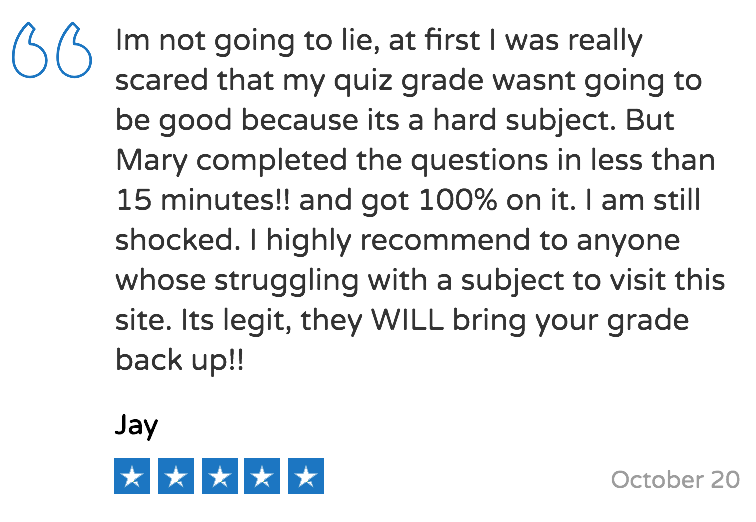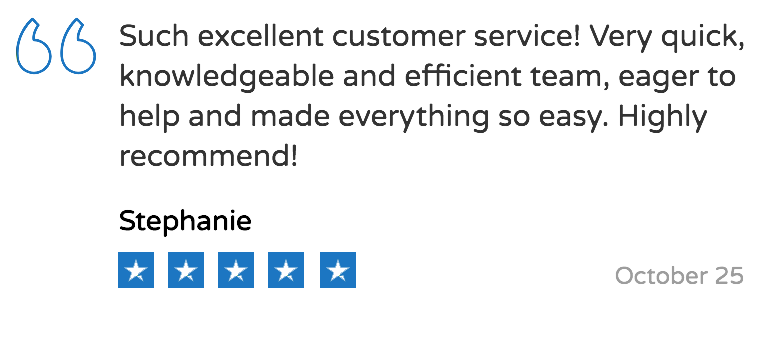Your
6+ Years Acing Homework | 350k+ Happy Students
- Homework
- Assignment
- Quiz
- Test
- Proctored Exam
- Essay
- Project
- Full Online Class
Get Homework Help on These Platforms
We have extensive experience doing homework for students on these online platforms boosting your grades
- Canvas
- Backboard
- Pearson MyLab
- MyMathLab
- MathXL
- WebAssign
- MyOpenMath
- ConnectMath
- HawkesLearning
- Connect
- Aleks
- D2L (Desire2Learn)
- Cengage
- Moodle
- WileyPlus
- MacGraw-Hill
- Straighterline.Com
- Sophia.Org
- Study.Com
- Many Others
Effective Group Study Techniques for Accounting Courses
Exploring through an accounting course can be a tough task. You’re often faced with complex concepts and endless numbers. But don’t fret! Group study can be a game-changer.
Group study is more than just cramming before exams. It’s about sharing knowledge, gaining new perspectives, and enhancing your understanding of intricate accounting principles. But how can you make the most of your group study sessions?
Why choose group study for accounting courses?
Taking on accounting coursework can sometimes feel like trying to scale a steep mountain. Complex jargon, intricate concepts, and a whole lot of numbers make the subject tricky to master. Enter the lifesaver – group study. So, why should you choose group study for your accounting courses?

Accounting, better together.
Contrary to popular belief, group study isn’t simply about readings and rote recitation before an exam. It’s a forum for sharing knowledge, insights, and different viewpoints. It’s a chance to break down complex accounting principles and problems, making them easier to understand.
Accounting often involves various steps and processes which may seem overwhelming at first. But in a group study environment, you’ve got multiple eyes looking over every detail. This means less chance of missing out on crucial steps. Here’s a quick look at what’s in it for you:
- Shared Expertise: Every member brings their unique understanding and skills to the table. You’ll learn faster and better!
- Shared Responsibility: Split tasks and share the workload. That’s efficiency right there!
- Shared Motivation: It’s easier to keep going when the going gets tough if you’re not alone in the struggle.
Group study fosters an environment of peer learning. You get to uncover new perspectives and approaches that you might overlook on your own. It’s more engaging, interactive, and often less stressful!
Setting goals for effective group study
Goal-setting is crucial in any venture, including group study for accounting courses. It directs focus and offers a clear benchmark for assessing progress. In this context, well-defined goals can dramatically improve the efficacy of your study sessions.
To maximize your group’s productivity, it’s worth considering SMART goals. This stands for Specific, Measurable, Achievable, Relevant, and Time-bound.
- Specific: The goals should be clear-cut. Instead of saying “understand accounting principles”, it’s more effective to declare, “master the specifics of cost accounting”.
- Measurable: This allows you to track progress. If the goal is to complete a chapter, break it down into subsections.
- Achievable: While it’s good to aim high, setting unreasonable objectives might lead to stress and demotivation.
- Relevant: The goals should augment your accounting knowledge and career aspirations.
- Time-bound: This emphasizes the importance of discipline and time management.
| SMART Principles | What it means |
|---|---|
| Specific | Your goal should be unambiguous and clear |
| Measurable | You should be able to track your progress |
| Achievable | Set realistic goals |
| Relevant | Goals should be related to your study |
| Time-bound | Set a deadline to achieve your goal |
As the saying goes, “Groups that plan together, excel together”. By setting and working toward shared goals, you’re fostering an environment of collective responsibility. It infuses a sense of purpose and urgency, elicits determination, and profoundly impacts the group dynamics in a positive way.
Remember, it’s the journey that matters. Group study is not just about reaching the destination, i.e., cramming before exams or solving complex problems. It’s also about the path you traverse together, the knowledge you exchange, and the perspectives you gain. Begin on this journey with clear goals and witness the magic unfold.
Creating a study schedule
Crafting a study schedule is an integral aspect of any successful group study effort. By structuring your time effectively, you’ll be better equipped to tackle the complexities of accounting. But how do you approach this task?
Take Stock of Your Study Material
First, gather all of your course materials. This should include:
- Textbooks
- Class handouts and notes
- Recommended readings
- Past exams or quizzes
Understanding the volume of material that needs to be covered will help you plan more effectively.
Allocate Study Time
Next, you’ll need to allocate study time. Shared calendars work best for groups to keep everyone on track. Google Calendar, for example, offers shared scheduling facilities. Keep these important factors in mind:
- Weekly study time: Aim for a total of 9 to 12 hours weekly, spread across different days.
- Length of study sessions: Opt for study sessions between 1 to 3 hours. Longer periods might lead to exhaustion or straying off-topic.
- Breaks: Short breaks of 5-10 minutes after every 25-30 minutes of study can enhance focus and reduce fatigue.
Set The Study Agenda
Creating a defined agenda for each session ensures you use your study time efficiently. It might be helpful to use a Study Plan app or simply write down the agenda before each session. Don’t forget to include:
- Topic(s) to be covered.
- The person(s) in charge of leading the discussion.
- Specific learning goals or queries to address.
Monitor Progress
A study schedule isn’t something you set and forget. It’s crucial to regularly check if you’re accomplishing your tasks within the allotted time or if you need to adjust your plan.
No study strategy can guarantee instant mastery. However, a well-planned study schedule, coupled with SMART goals, could be the key to unlocking your potential in an accounting course.
Selecting the right study materials
 As your journey through accounting coursework continues, it’s crucial to equip yourself with appropriate study materials. Having your arsenal of resources ready will not only streamline your studies, but also deepen your understanding of accounting principles. These strategies can enhance your collaborative learning experience.
As your journey through accounting coursework continues, it’s crucial to equip yourself with appropriate study materials. Having your arsenal of resources ready will not only streamline your studies, but also deepen your understanding of accounting principles. These strategies can enhance your collaborative learning experience.
To kickstart your material curation, build a catalogue of textbooks recommended by your faculty. They’ll provide in-depth information on your accounting course topics. In addition, they breakdown complex phenomena into digestible units, helping you master the details.
Next, make use of the vast online resources at your disposal. Many trusted websites publish materials helpful for accounting students. Look for interactive platforms that offer video tutorials, quizzes, and worksheets. Sites such as Khan Academy and Coursera house well-structured accounting courses and modules.
Capitalize on the power of study guides and past papers. These can help you get a handle on the examination style and formulate effective responses.
Don’t forget to assess each material’s suitability to your study group. A shared understanding amongst group members is crucial for efficient learning. Here are some factors to consider:
- Accessibility: Ensure all group members can easily access the material.
- Comprehensibility: The material should be comprehensive enough for everyone’s understanding.
- Relevance: The material needs to match your course content as closely as possible.
Remember, finding the right study materials can feel overwhelming at first. But, taking the time to carefully curate and filter them will deliver benefits in the long run. Not only will they clarify your understanding, but they’ll also drive productive and enjoyable group study sessions.
Stay diligent in your search and remain open to adjusting your resource list. In this dynamic field, new and updated materials are continuously released. Let’s relish in the spirit of learning and make each group study session a stepping stone towards accounting success.
Effective communication within the group
 Let’s investigate into the crux of group study: effective communication. Without clear, concise, and constructive exchange of information, group studies can easily turn into casual hangouts. So, how can you ensure that your group fosters an environment conducive to learning?
Let’s investigate into the crux of group study: effective communication. Without clear, concise, and constructive exchange of information, group studies can easily turn into casual hangouts. So, how can you ensure that your group fosters an environment conducive to learning?
Active Listening tops the list. It’s integral for group members to listen attentively to each other’s ideas, giving each person an opportunity to contribute to the conversation. Active listening involves
- Giving feedback
- Asking clarifying questions
- Repeating or rephrasing information to ensure understanding.
Encourage the use of accounting terminology within your group study sessions. This not only enhances understanding of complex concepts but also prepares you for professional interactions within the accounting sector. Remember, your comfort with accounting jargon could make a difference when facing job interviews or networking events.
But communication isn’t only about talking and listening. Non-verbal cues play a critical role too. Make sure that you’re open to observing and understanding these signs as they can provide you with in-depth insights into group dynamics.
Finally, an often overlooked but indispensable part of group communication is knowing when to take breaks. Studies show that taking breaks can significantly improve focus, productivity, and overall group coordination.
Remember, effective communication doesn’t come naturally to everyone. It’s a skill that requires effort, patience, and understanding. By focusing on these key areas, you’ll be fostering a healthy group study environment, and are likely to see a significant improvement in your collective understanding of your accounting course.
Active participation and engagement
When you’re working in a group study setting for your accounting courses, Active participation and engagement can take your learning to the next level. This becomes especially important when you’re trying to conquer tough topics or solve complex problems.
So, how do you become an active participant and stay engaged in group study? Here’s how:
- Speak Up and Share Ideas: Your unique perspective may solve a tricky problem or contribute significantly to the common pool of knowledge.
- Ask Questions: If something isn’t clear to you, chances are it isn’t clear to someone else in the group either. Ask questions, seek clarification, and inspire dialogue within your study group.
- Take on a Role: Each person in the group can take on a specific role, such as the questioner, summarizer, or time-keeper. This keeps everyone involved and accountable.
To fully engage in group study, anchoring your attention is essential. Without further ado, here are some key tips to keep you engaged:
- Focus on the task at hand, pushing aside distractions or unrelated thoughts.
- Encourage a positive study environment where everyone feels at ease contributing.
- Stay open-minded and be receptive to other’s ideas.
Putting these strategies to practice, active participation and engagement will become second nature to you. Remember, the more you participate and engage, the more you learn and grow. Applying and perfecting these techniques in your accounting course, you’ll find studying more productive, enjoyable, and effective.
As we investigate further into our suggestions for group study, let’s remember how important it is to keep the dialogue going, listen actively and give constructive feedback. Building upon these foundations, effective group study techniques for your accounting course will take a shape that’s uniquely catered to your learning style and goals. So keep going, stay persistent, and watch your accounting knowledge grow.
Utilizing different study techniques
When it comes to enhancing your accounting knowledge, relying on just one study technique won’t cut it. Good news is, there’s a plethora of effective study techniques tailored to aid comprehension of complex accounting principles.
Taking Frequent Breaks: The Pomodoro Technique
The Pomodoro Technique is your ticket to maintaining focus and staving off mental fatigue. The premise? Study for 25 minutes, take a 5-minute break, rinse and repeat. After the fourth ‘Pomodoro,’ take a longer break – between 15 to 30 minutes. This technique facilitates a better understanding and retention of accounting concepts, preventing burnout.
Visual Learning: Diagrams and Flowcharts
Visual tools like diagrams and flowcharts help easy comprehension, particularly for complex accounting principles and procedures. Visual learners will greatly benefit from drawing these diagrams during group study sessions.
Collaborative Learning: Think-Pair-Share Technique
In an accounting group study, the Think-Pair-Share technique encourages active participation. Here’s how it works:
- Think: Individually consider a question or a problem.
- Pair: Combine with a partner to discuss ideas.
- Share: Convey these ideas within the group.
You’re not just learning from your study materials; you’re learning from your peers’ perspectives.
These techniques aren’t just strategies, they’re habits you should cultivate to enhance your understanding and passion for accounting. Remember, keep trying out various techniques and find the ones that work best for you and your group. Engage in active participation and keep an open mind throughout your group study sessions.
Reviewing and discussing challenging accounting concepts
In your journey to mastery, you’ll undoubtedly encounter challenging accounting concepts. It’s not enough to merely skim over these difficult areas. Engaging in in-depth discussions and detailed review is called for.
Through discussing these tough areas with your peers, you boost the learning process. When everyone brings their unique points of view to the table, you get a chance to see things from different angles. It’s similar to piecing together a complex puzzle. Collaborative problem solving can be a potent weapon in your intellectual arsenal.
A proven strategy in this regard is the use of the Socratic method. Here, you ask probing questions and investigate into the subject at hand. Why is the concept the way it is? What principles does it follow? How does it connect with other concepts? You’re not merely seeking answers. You’re also building a comprehensive understanding of the topic.
Another technique to ace these challenging areas is by summarizing the concepts. Try to explain it in your own words without reading or referencing any material. If you stumble or falter, that shows you still have room to improve.
Practical exercises are a must while studying complex accounting concepts. The more you practice what you’ve learned, the better it’ll stick. Don’t be afraid to explore worksheets, online resources, or practical problem sets.
Taking up case studies can tremendously bolster your understanding too. Case studies allow you to see how the principles play out in a realistic business setting. You observe, analyze, and derive crucial insights that can significantly elevate your acumen.
Remember, there’s no ‘one size fits all’ approach to learning. Mix and match different strategies to see what works best for you and your group. Highlight your strengths, work on the weaknesses, and keep pushing forward. After all, mastering accounting is not a sprint; it’s a marathon.
Recall that group study is powerful. Harness this power, confront those challenging accounting concepts, and watch as your understanding deepens and grows.
Managing group dynamics and conflicts
Effective group study isn’t solely about mastering the course material: indeed, Managing group dynamics and conflicts also plays a crucial role. You’ve likely been in a situation where personality differences, disagreements on workflow, or differing levels of commitment culminate in tension within your study team.
If you’re proactive about exploring these elements, a harmonious, effective group study experience can be a reality. Let’s investigate into some strategies for optimizing group dynamics and addressing conflicts.
First, establish clear roles. Everyone in your group should have a specific function and know what’s expected of them:
- Group Leader: drives the team’s direction, keeps everyone on track, and schedules meetings.
- Scribe: takes notes, especially when you employ the Think-Pair-Share technique.
- Timekeeper: keeps an eye on the time during each session, ensuring effective utilization of the Pomodoro Technique.
- Resource Manager: keeps track of the study materials and online resources.
Next, define a communications strategy. Ensure everyone in the group knows the way and when to share ideas, provide feedback, or voice concerns. In-person communication is ideal, but in this digital age, apps like Slack or Trello can also foster efficient collaboration and information sharing.
Conflicts, while disconcerting, are a natural part of human interaction. When they occur, it’s important to be proactive in resolving disputes. Begin by pinpointing the issue and encouraging open communication. Often, disagreements arise from misunderstandings that can be cleared up through a candid conversation. Remember to keep the tone non-threatening—this isn’t about confrontation but resolution.
Maintaining a positive group dynamic and managing conflicts can seem daunting. Yet, with these strategies, you’ll be well-equipped to address any challenges that might surface in your accounting study group. By incorporating efficient communication, defining roles, and proactively handling disputes, you’re laying the groundwork for not only a successful group study but also a more pleasant, fulfilling learning experience. With this sorted, you can better focus on improving your understanding of those challenging accounting concepts.
Conclusion
So you’ve learned how SMART goals can enhance your group study sessions in accounting. It’s all about setting clear, measurable, and relevant objectives, breaking tasks down, and maintaining discipline. You’ve also seen how creating a study schedule can keep you on track. But remember, it’s not just about the study plan. It’s also about managing group dynamics effectively. By defining roles, setting up a communication strategy, and addressing conflicts proactively, you’ll create a positive environment for your accounting study group. As you apply these techniques, you’re not only preparing for your accounting course but also building essential skills for your future career. So go ahead, embrace these strategies, and watch your group study sessions become more effective than ever.
REQUEST A QUOTE Chat, Text or Email Us and Get a Quote Within Minutes
Order NowThe difficulty of a subject can be and is a big challenge for students. When concepts are hard to grasp, especially in subjects like advanced mathematics or statistics, these students see no other choice but to reach out to websites that provide homework assistance. This is especially the case with students that are taking their classes online who are missing the study group experience with their peers or hearing an in-person lecture on campus.
An overwhelming workload from multiple classes can make it challenging for many students to dedicate the necessary time and energy to all those homework assignments. When faced with deadlines for essays, projects and exams all due around the same time, the pressure can easily push students to hire someone to do that coursework. It is easy to assume that students can handle everything, but when faced having to free up countless hours to manage a heavy workload, the time is just not there.
Stress and anxiety about meeting fast approaching deadlines can be extremely overwhelming for students. The fear of not having studied enough to pass that test or exam when faced with increasing performance expectations by the academia can be paralyzing. This can lead to a situation where students feel that the only way to make it through is by paying someone to do their homework and make it one step closer to graduation.
A lack of time is another major factor driving students to outsource their homework. Busy schedules filled with extracurricular activities, part-time jobs, and family commitments can leave little to no room for homework and exams. This lack of available time is particularly challenging for college students who are trying to balance overwhelming academic responsibilities with personal development and a fulfilling social life. There are many aspects of life that are more important and hiring homework help services is the better alternative for achieving a balance.
Real Customer Reviews













